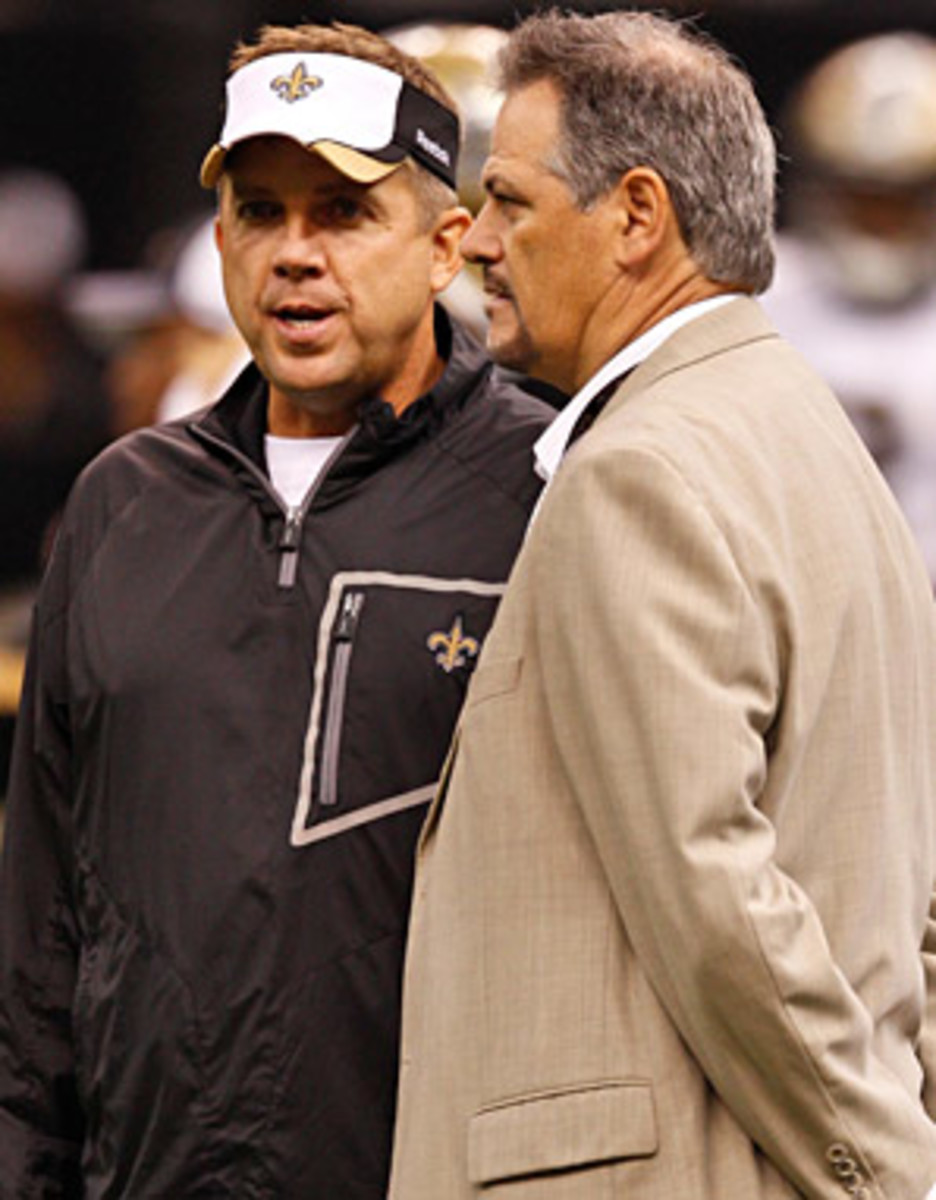Breaking down the potential legal fallout of Saints' bounty system
The bounty system implicates at least two types of criminal charges: battery and conspiracy. Battery, which under Louisiana law is punishable by up to six months in jail, refers to the intentional use of force upon another person without that person's consent. Here, a Saints player who intentionally tried to injure another team's player could have battered that player. In response, a Saints player might argue that offensive players assume the risk of serious injury on every play, especially since defensive players are rewarded for stopping the advancement of the ball. That rationale would be deeply flawed, however, because while offensive players assume the risk of injury on a tackle, they do not assume the tackle is intended to injure them. The Saints' "pay for injury" model is clearly outside the boundaries of the game and an assumption of risk defense holds little weight.
It is even possible that a Saints player could be charged with second degree battery. This is a more serious type of battery, which carries a potential five-year prison sentence and which refers to intentionally inflicting serious bodily injury. Under Louisiana law, "serious bodily injury" refers to causing another person extreme physical pain, unconsciousness, or risk of death. A bounty to injure someone so seriously that he's carted off the field arguably rises to second degree battery.
There is a three years statute of limitation for battery charges, which means that bounties -- which took place over the last three seasons -- occurred recently-enough for criminal prosecution.
It's not just Saints players who are susceptible to criminal charges. Former defensive coordinator Gregg Williams, who admits to aiding and abetting the bounty system, could be charged as a conspirator. Under Louisiana law, criminal conspiracy is when two or more persons -- such as a defensive coordinator and his players -- agree to commit a crime (battery).
Head coach Sean Payton and general manager Mickey Loomis may have also committed crimes by failing to do anything about the bounty system. Louisiana law recognizes criminal negligence which refers to conduct that, while not intentional, shows a callous disregard for the safety of others. If Payton and Loomis were indeed aware of the bounty system and let it slide, they seem susceptible to criminal charges.
While the above provides a road map to criminal prosecutions of Saints players, coaches and front office personnel, prosecutors seldom seek charges for incidents that occur on the field. This is true even for on-field incidents that would clearly be crimes if they occurred on a public street. Prosecutors and judges generally defer to leagues to enforce their own rules and assign their own penalties. While this deference makes sense on some levels, one may wonder whether an NFL penalty provides adequate deterrence for preventing future bounty systems: even the most serious NFL fine -- banishment from the game -- could never come close to the threat of a judge sentencing someone to jail or prison. Besides, in the rare instances when criminal charges are brought by authorities, they are often brought outside of the U.S. (such as when Vancouver authorities charged Boston Bruins defenseman Marty McSorley for his vicious slash of Vancouver Canucks forward Donald Brashear).
Players who were injured by the Saints' bounty system could file personal injury lawsuits against the Saints, Williams, and the players who earned bounties. They are unlikely to do so, since NFL players seldom file personal injury claims for on-field injuries. Then again, a player injured because of bounty may feel differently than if he had been injured in the normal course of a game. With a bounty system, a player is targeted for injury. No player assumes such a risk. Plus, put yourself in the position of a player injured by a bounty: you suffered the injury not because of fair play but because a "hit man" tried to injure you. You and your family may seek legal redress for this unquestionable wrong.
Players who received bounty payments should have reported them as taxable income; even if the payments arose because of criminal activity, such "ill gotten gains" are taxable. Failure to pay one's full share of taxes constitutes tax evasion. The IRS and Louisiana Department of Revenue are likely following the bounty system scandal with a watchful eye.
If the bounty scandal becomes a major story, Saints owner Tom Benson may deem it necessary to fire players, coaches and front personnel who participated in it. Those firings could be done "for cause", which would relieve the Saints of any remaining financial obligations on the contract. A for cause firing may be appropriate because the bounty system is arguably criminal and tortious and is clearly outside the scope of any employment contract. It has also caused the Saints franchise serious and potentially irreparable harm.
Fans who paid a good deal of money to attend Saints games, be they home or away, may reason that they were the victims of false advertising: they paid to watch competitive NFL football, not hired hit men who tried to injure other human beings. Louisiana has several laws for remedying false advertising and deceptive trade practices.
Michael McCann is a sports law professor and Sports Law Institute director at Vermont Law School and the distinguished visiting Hall of Fame Professor of Law at Mississippi College School of Law. He also serves as NBA TV's On-Air Legal Analyst. Follow him on Twitter.





